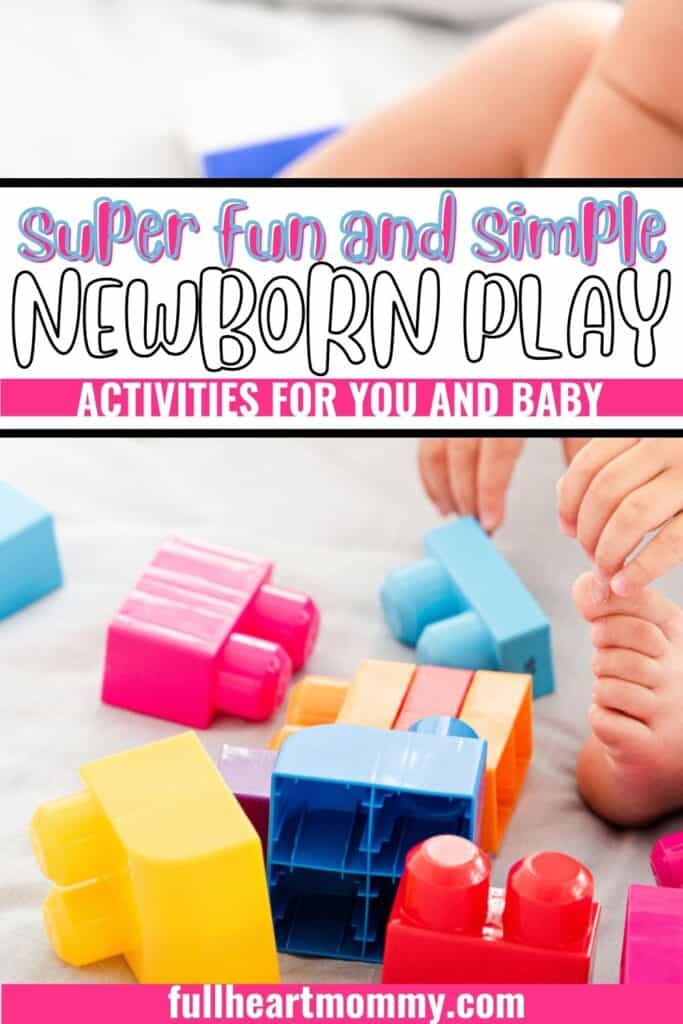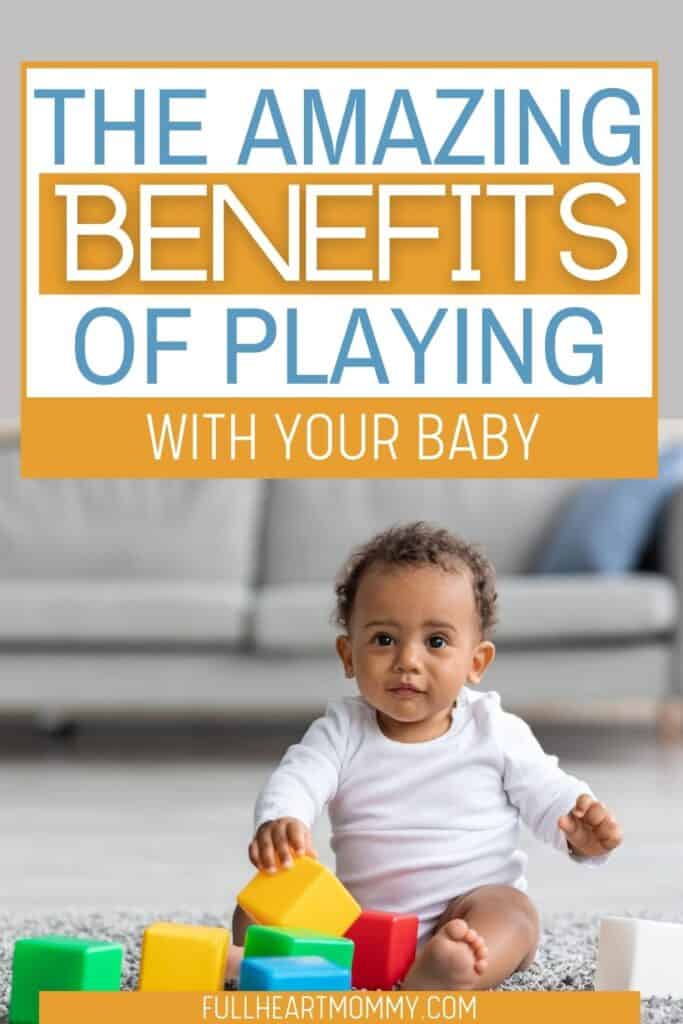When it comes to newborns, many parents are unsure if they need to play with their child. Some believe that newborns don’t need to be played with because they’re too young, while others think that not playing with a baby will make them anti-social.
So, what’s the truth? Do newborns need to play?
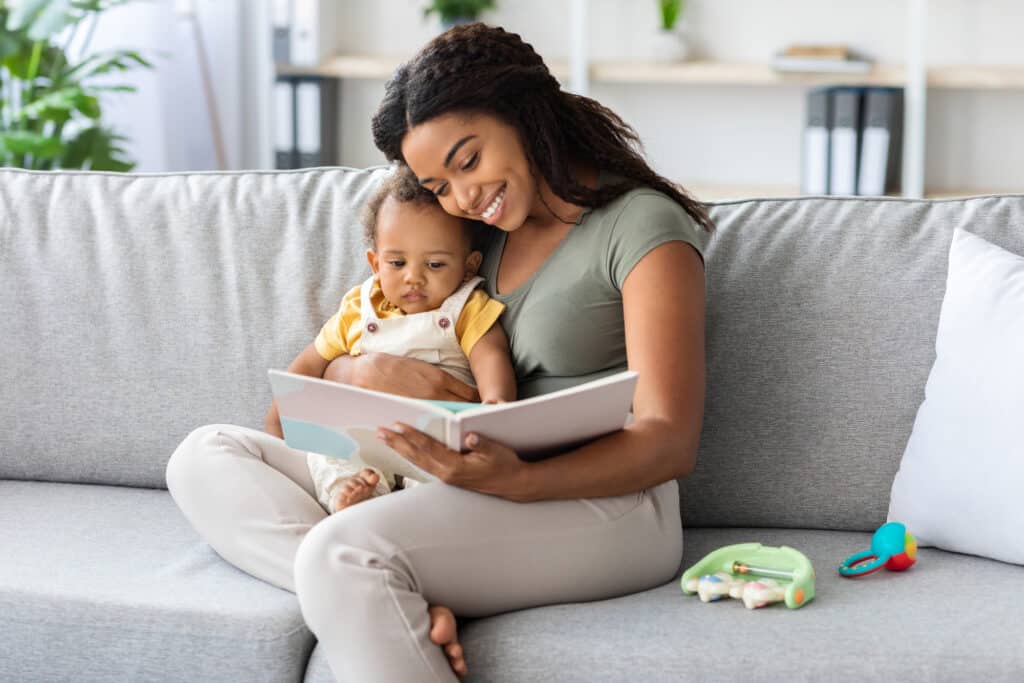
The answer is yes – newborns do need to play. In fact, play is an essential part of a baby’s development. Here are a few ways that play can contribute to your little one’s development.
When do you start playing with your baby?
There is no right or wrong answer to this question; it varies from family to family and child to child. Some parents start playing with their baby as soon as they are born, while others wait until the baby is a little older.
Some parents believe that it is important to start bonding with their baby from the moment they are born. They believe that early interaction will help the baby develop emotionally and socially.
Some parents believe that it is important for their child to be able to see them playing with objects.
How much should you play with your baby?
The amount of time you should play with them, however, varies based on their age and individual needs. In the early weeks and months, playing with your baby can be a daily occurrence.
Even babies just a few days old can get two or three tummy time play sessions per day, each lasting around three to five minutes.
However, avoid over-stimulating your baby. Newborns are sensitive and need time to adjust to their new surroundings. Playing with them for just a few minutes day will be good. They will be sleeping a lot anyway!
As they get older, you can increase playtime, but even while they are young you can still make time for it.
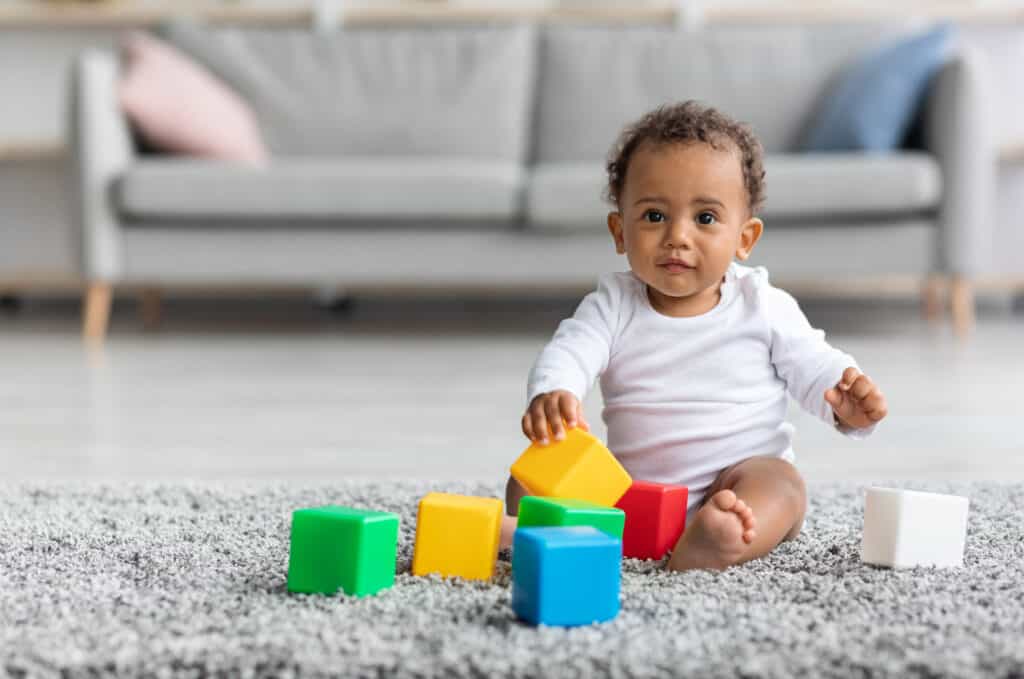
What type of things should you play with your baby?
What should you do during these play sessions? There are lots of things! Activity can be any activity that engages your baby in a way they enjoy.
For example, a walk to the park, or reading together, or playing with toys. You can also do simple things like patting them on the back, blowing warm breath on their face and so on.
Babies are curious by nature and love to explore the world around them. There are many different types of things that you can play with your baby to help them learn and explore. Here are 7 things that you can try:
cuddling
holding
singing lullabies
rocking
playing with their toys
reading stories to them
looking at pictures
Stimulating Your Newborn
Introducing a newborn to different forms of stimulation can help improve their development. Stimulating a newborn’s vision, hearing, and touch helps them learn about the world around them and develop their skills.
Some common ways to stimulate a newborn include talking to them, playing music, and providing skin-to-skin contact. Stimulating a newborn can help improve their development and gives them a head start in life.
When do babies start to play with toys?

There is no precise answer to this question as babies vary in their development. However, there are some general milestones that can give a rough idea of when babies might start to play with toys.
Most babies will start to reach for objects around them by the time they are around six months old. Once they can grasp objects, they may start to explore them and play with them. This can include banging them together, putting them in their mouths, or just looking at them closely.
On any given day, an infant’s playtime is filled with experimenting with their new skills and abilities. Whether it’s batting at a toy or grabbing onto a colorful mobile, infants are constantly discovering new ways to interact with their surroundings.
While parents and caregivers may worry that infants are not playing “properly,” they are actually learning vital skills during their playtime.
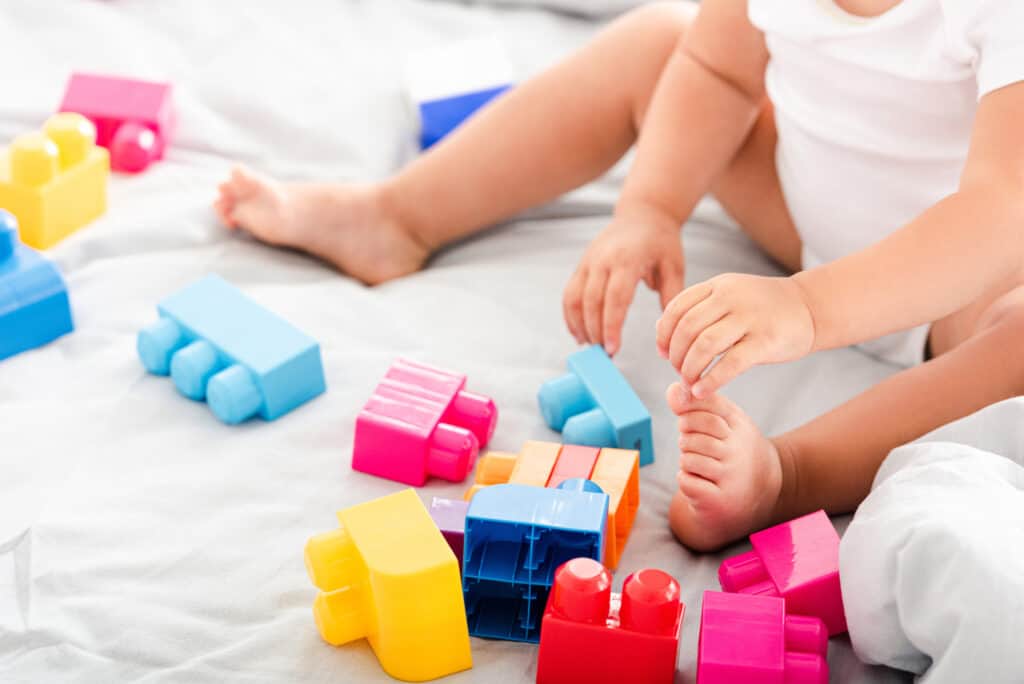
What are the benefits of playing with a newborn?
Playing with a newborn has many benefits for both the baby and the adult. For babies, playing helps stimulate brain development and encourages learning. It also helps them develop motor skills and increases their social interaction. For adults, playing with a baby is a great way to bond with the child and can help relieve stress.
Related: 16 Things To Things To Do With A Newborn To Encourage Parent Child Bonding
Newborn activities week by week
As a new parent, it’s important to know what you can expect during your baby’s first few weeks of life. Each week brings new milestones and experiences for both you and your newborn. Here is a guide to some of the activities and experiences you can expect during your baby’s first seven weeks.
Week 1: First week in a new home. Your newborn will spend their first few days sleeping, eating, and bonding with you.
Week 2: During week two, your newborn will start to become a little more active. Your baby’s muscles are growing and developing, so they’ll be moving around a lot. They’ll also start to suckle and learn how to swallow.
Week 3: In this week, the baby will start to develop a sleep-wake cycle and will start to interact with their environment. They may also start to suck on their fingers or thumbs.
Week 4: During the fourth week, your baby will be able to hold its head up for longer periods of time.
Week 5: In week five, the baby will be able to listen more intently. Your baby may be starting to move more deliberately, which can indicate that he or she is developing better motor skills.
Week 6: At this point, your newborn’s brain has developed enough that they can recognize people and objects.
Week 7: By now, your baby will be able to focus on things at different distances and can recognize facial expressions.
In conclusion, playing with your newborn is important for their development. It can provide many benefits, such as stimulating brain growth, fostering a strong parent-child bond, and teaching them new skills. So go ahead and have fun with your little one—they’ll love it!
Save this post and share!
